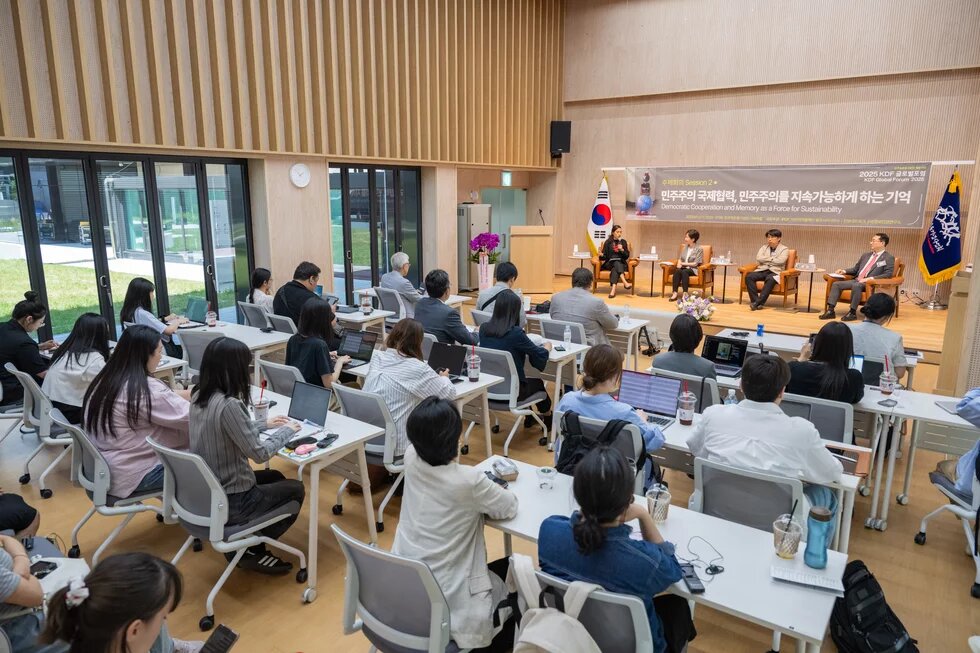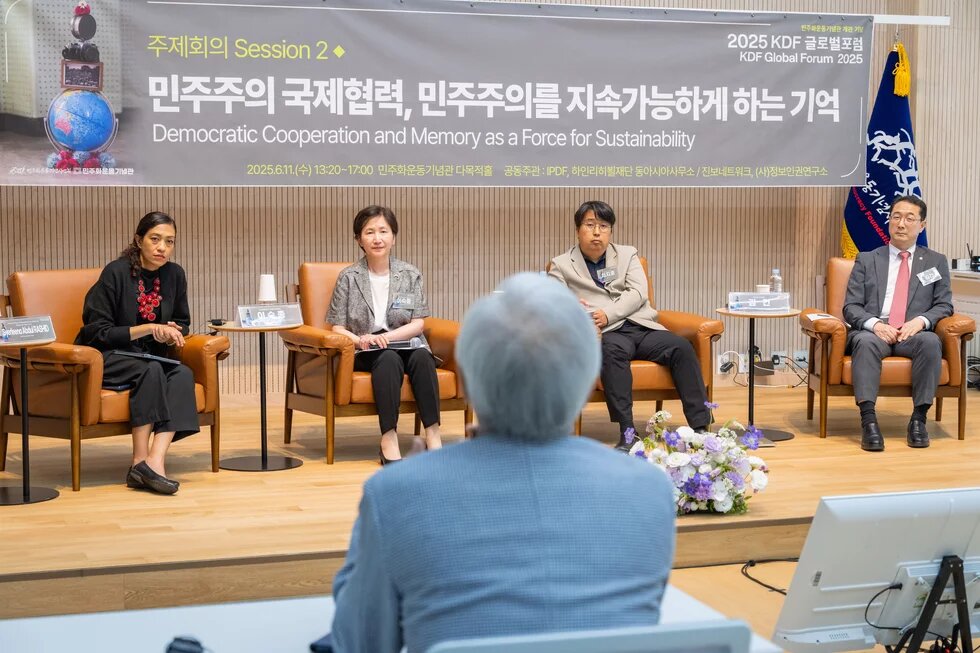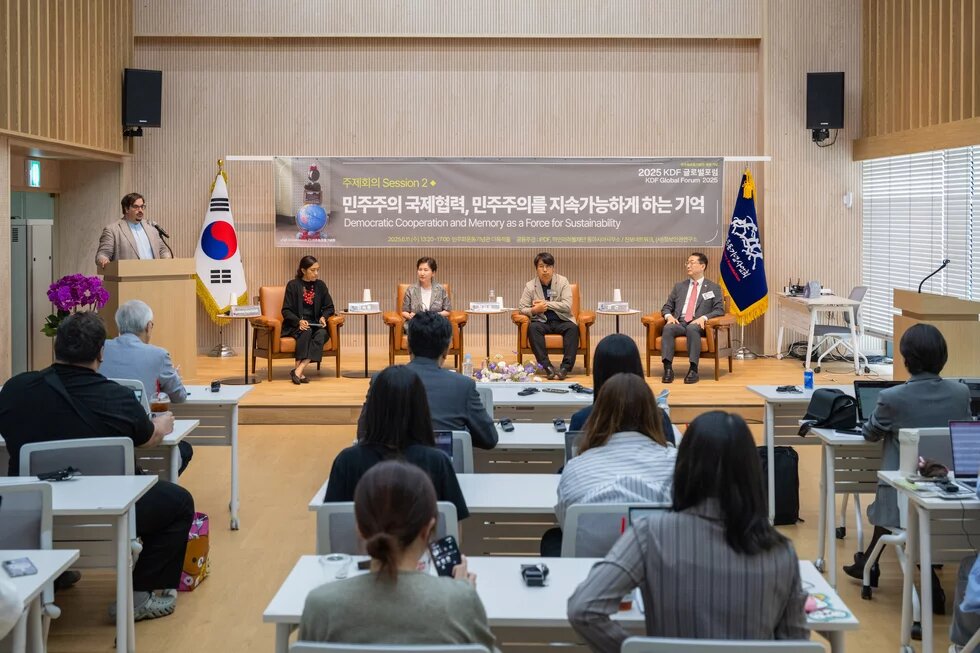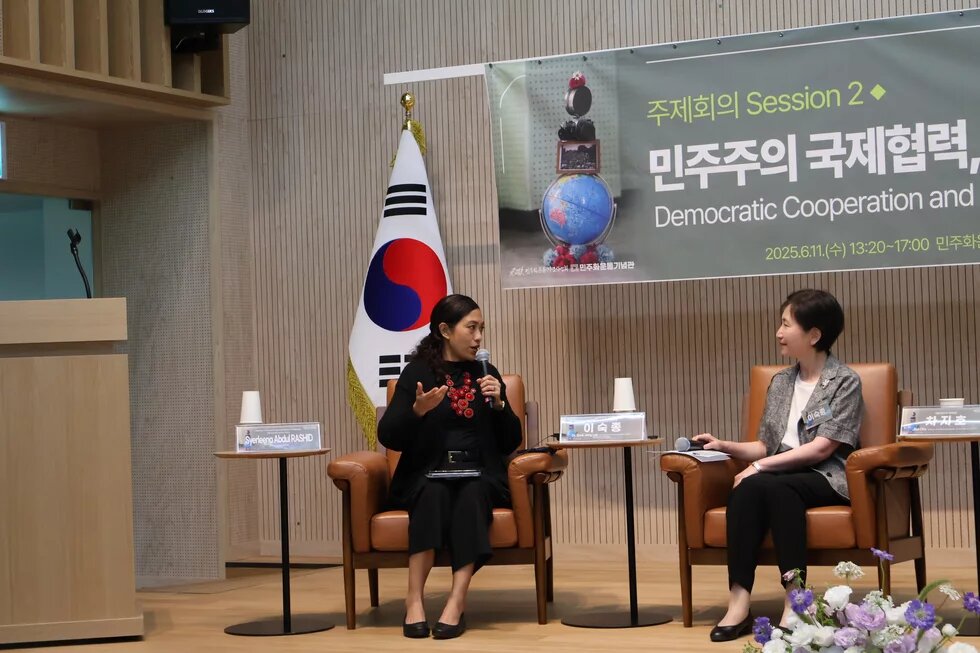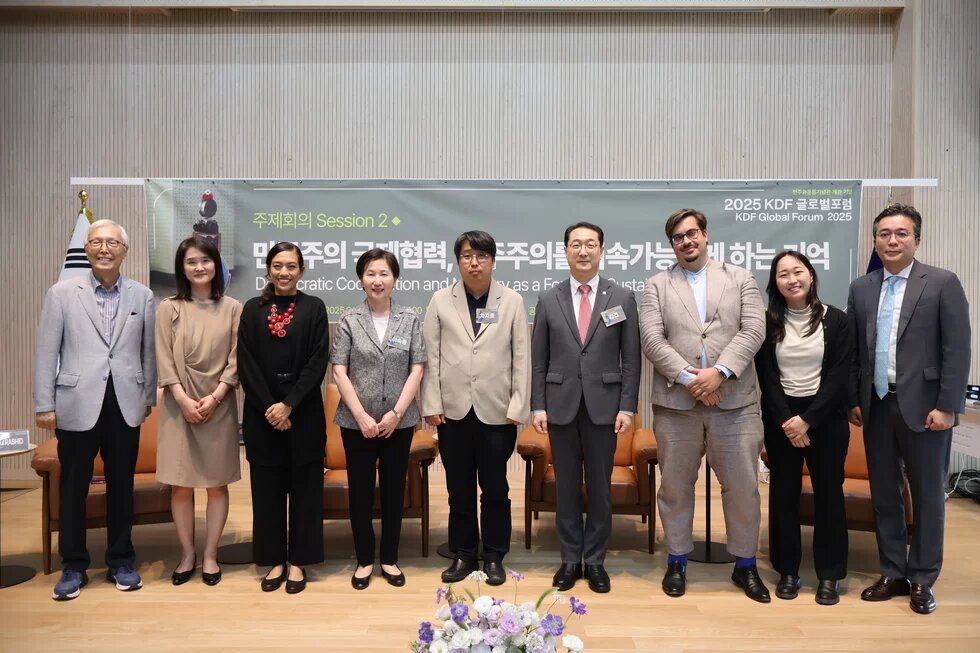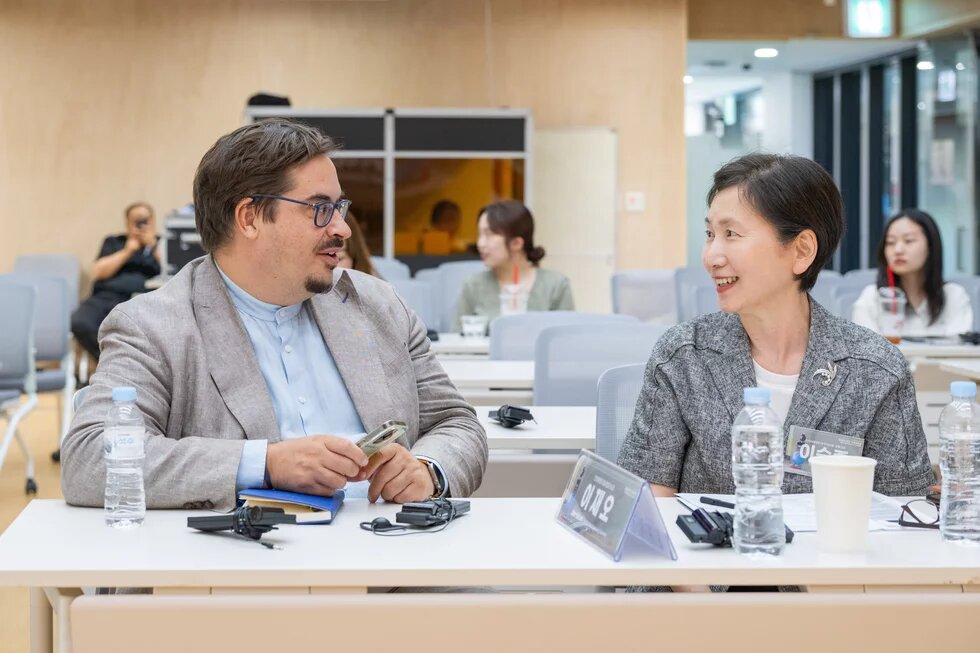
Healthy democracies have proven to be more resilient in the face of crises and pandemics. However, in recent years, signs of democratic backsliding has become increasingly visible around the world, manifesting through political polarization and the weakening of the liberal international order. This raises a critical question: what efforts can be made to strengthen democracy? To address this, the Heinrich Böll Foundation East Asia Office and the Indo-Pacific Democracy Forum (IPDF) co-hosted a session at the 2025 KDF Global Forum titled “Parliamentarians’ Voices for Democratic Unity in the Indo-Pacific.” Moderated by Dr. Sook Jong Lee (Representative, IPDF), the discussion featured Gunn Kim (National Assembly Member, People Power Party), Jiho Cha (National Assembly Member, Democratic Party) and Syerleena Abdul Rashid (Member of the House of Representatives Malaysia, Democratic Action Party), who explored how parliamentarians can collaborate to uphold democratic values and strengthen democratic governance in the Asia-Pacific region.
This article is a summary of the 2025 KDF Global Forum panel session titled “Parliamentarians’ Voices for Democratic Unity in the Indo-Pacific” that was jointly hosted by HBS East Asia and the Indo-Pacific Democracy Forum
From Ruling to Opposition: Safeguarding Democracy at Home and Abroad.
Democracy is often tumultuous and its direction is uncertain; however, this is the essence of democracy. Recent events have shown Korea’s democratic resilience and the country’s democracy is entering a new stage. Following martial law and the snap elections, the Democratic Party (DP) now holds both the executive office as well as the majority of the legislative branch, the National Assembly. Meanwhile, the former ruling, but now opposition, People Power Party (PPP) faces a pressing question: how can they regain the public’s trust and what role will they play in safeguarding democracy?
One way the PPP can regain public trust is by actively communicating and representing the people, particularly the vulnerable groups. By identifying and prioritizing those most in need, the government can focus assisting the targeted groups while also safeguarding Korea’s financial stability. This is different from the DP’s strategy of a universal distribution of support. However, this difference is not simply an act of rebellion, but an example of the PPP functioning as a “loyal opposition.” In other words, PPP can act as a check on the majority ruling party and offer alternative polices and perspectives that better benefit the sovereignty of the country. Constructive discussion between the different parties is essential to a healthy democracy.
South Korea has learned through experience that freedom and prosperity go hand in hand, reinforcing its commitment to liberal democracy. To promote co-prosperity based on these values, the previous Yoon administration collaborated with the Biden administration. It is crucial that these efforts continue, even amid changes in government. However, the United States has shown signs of retreating from its leadership role in the Liberal International Order. To overcome this challenge, South Korea should strengthen cooperation with like-minded partners to uphold a rules based order. Countries in Asia can begin by integrating this agenda into existing sub-regional platforms such as ASEAN and APEC.
The Strength and Challenges of South Korean Civic Participation
South Korea has a history of everyday people standing up to fight for human rights and democracy. As a result, many preventive measures like the constitution, laws and other systems are put into place to protect citizens. However, the declaration of martial law that took place in December of 2024 made it clear that merely having such system in place is not enough to safeguard democracy. In both the past and recent events the Korean civil society and civil society movements played a crucial role. Therefore, during a time of crisis, policymakers should listen to and synchronize voices with the citizens that they are representing.
Citizens today however, are increasingly divided due to polarization and AI algorithms can be considered one of its contributing factors. In the past, people used to get information through a media sources curated by humans. Over the years, information sources have become more diverse and today many people rely on the internet and social media. A critical difference is that today, AI acts as the curator that selects and delivers content. Since AI algorithms are designed to prioritize certain information, once a user engages with specific content, the system tends to recommend more extreme or similar material, creating an echo chamber. As a result, people with different political leanings and beliefs vastly differ from each other, living in a different “digital world.” This phenomenon intensifies polarization globally, and it is crucial that we address and manage the impact AI has on society, especially when considering that people-centered decision making approach makes positive impacts that transcends borders.
Humanitarian efforts like Doctors Without Borders demonstrate the powerful impact of people-centered approaches that transcend national borders. In contrast, many efforts to spread democratic values often rely on political tools such as sanctions which can be limited in addressing complex global challenges like human rights and global health. While many turn to UN institutions, these bodies mainly focus on inter-state cooperation and solutions. To respond to this, parliamentarians have a unique opportunity to collaborate across borders through legislative processes to advance democratic principles and people-centered approaches. For example, some South Korean lawmakers participate in the Asia Pacific Parliamentarian Forum on Global health to drive legal reforms on emerging issues such as AI, Climate change and digital policies.
Transparency, Civic Empowerment and Discourse: Democratic Resilience in Malaysia
Democracy is complicated but Malaysia has been deepening its commitment to strengthen democracy through institutional reform, promoting transparency and encouraging civic participation. In a healthy democracy it is crucial that all sides engage in proper mature dialogue to discuss issues, exchange ideas and to ensure checks and balance. Such mechanism in the parliamentary level is the Parliamentary Select Committees (PSCs) and the Public Accounts Committee (PAC). The PSCs gather both ruling and opposition members to engage in meaningful discussion about policy directions. The PAC is headed by the opposition and ensures financial accountability and transparency. Discussions and reports are readily available for not just politicians but for the citizens as well.
Civic and youth empowerment is key to a healthy democracy and reforms have been made to protect the rights of Malaysian Citizens. The Anti-Party Hopping Law and the reintroduction of the Parliamentary Services act have not only made parliament more independent but also protected the rights and will of voters by ensuring that they are rightfully represented. Efforts have been made to empower and represent the Youth as the UNDI 18 Amendment lowered the voting age from 21 to 18 years old, alongside efforts to introduce political education at the high school level. These reforms also help keep the elected officals accountable to their constituents. Malaysia’s commitment to strengthening democracy does not end at home, as it seeks to share best practices regionally.
As challenges increasingly transcend national borders, it has become more crucial to strengthen inter-parliamentary cooperation. Malaysia is currently the chair for ASEAN and also participates in platforms such as the ASEAN Inter-Parliamentary Assembly and the ASEAN Parliamentarians for Human Rights. These forums offer parliamentarians the opportunity to discuss more openly in a candid and informal setting to share best practices. Technology also plays a critical role in bridging gaps and bringing global expertise into domestic debates. For example, during the COVID-19 pandemic, innovative virtual working groups were created to exchange ideas on policy implementation and economic recovery. However, merely increasing dialogue is not enough. Intentional inclusion, continuous follow up and creating context-specific approaches are crucial to ensure long-term impact.
